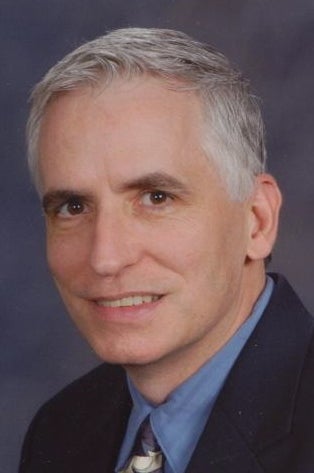As he approached retirement age, Ken Mandile started to think more about the future of his company, Swissturn/USA, and who would take over once he leaves. After exploring a variety of options, he decided employee ownership would be the best route.
“It was a matter of protecting the legacy of what we have here,” he said.
The Oxford company, a CNC machine shop that specializes in Swiss screw machine parts, is now 30-percent employee-owned, with plans to eventually make that 100 percent. Mandile spoke about the company culture, employee training and the company’s history.
Tell me about Swissturn.
We’re a high-precision turn parts shop. We have CNC screw machines, to make metal and plastic components. We make a lot of medical parts, laser parts, gun parts — a very large variety. We don’t focus on any one industry. Medical is about 40 percent of our business, so that’s the largest sector.
What’s the remaining 60 percent?
Guns, lasers, industrial products and a tiny percentage of consumer products. It is such a wide variety, mostly industrial. We’re providing parts to OEMs.
Most of [the parts are] under a half inch, I would say. Our primary machines go up to one and a quarter inch diameter, but we really specialize in the smaller work. In terms of quantities, it could be 50 pieces, 50,000 or 500,000. We’re very good in the mid-range, where it’s 50 to 500,000, but we do well overall.
Where are your customers located?
All over the United States. What we make is small, and they’re easy to ship. Our biggest area would be New England, but we do have customers all over the country.
Do you sell abroad at all?
A little bit, not very much though — only if we were supplying a customer in the U.S. and production got moved overseas, but we don’t market overseas.
How many employees do you have?
We have 55 employees. We have a 25,000-square-feet facility, which is relatively new facility for us. We moved here three years ago — we renovated an old warehouse. It’s a beautiful facility, people are very impressed by it. Right now we have 27 CNC screw machines.
Why did you move?
There are a couple of reasons. We were outgrowing the old facility, and we wanted to do some reorganization of the shop. It just wasn’t going to work in the old facility. We had only been there 10 years before we outgrew it.
When were you founded?
1987. My father originally founded a prior company in 1969, and that company converted to a new name. We were founded in Waltham. We come out of a tradition of watchmaking. Waltham was historically a center for precision machining because of the watch industry — that’s why there were a concentration of Swiss machines.
The Swiss refers to the type of machine — the machines we use are all made in Japan. It’s a configuration of a machine that allows it to hold very close tolerances over light, long production runs.
Most of our machines are relatively new, 10 years old or less. Ten years is our limit, and then we trade it in and get new machine. After that much time you start to see maintenance issues and wear. There aren’t huge leaps in machining technology like we used to see in the past, but we try to make sure the machines are reliable.
What else is new at the company?
On Jan. 1, we became 30 percent employee-owned.
I was getting to an age where I had to start thinking about succession planning. I was 57. We’ve grown a culture here very proud of –employees are very engaged, and after looking at other options, I didn’t feel comfortable that an outsider looking in would appreciate the culture we’d built. It was a matter of protecting the legacy of what we have here. We didn’t want it moved or merged into a larger company.
We do a lot here with employee engagement. We have self-directed work teams running the shop floor. We started an open book management process, where financial data and information is shared with employees. They’re trained on financial literacy. There’ll be specific financial goals to meet, and as goals are met they’ll earn a bonus based on those goals. They will be aware all along the way of what they’re doing. Each week they will review the process towards meeting their goals.
They are employee-owners, and I feel that to really feel and act like owners, they need to have the financial data to know where they stand. We were just awarded a small grant from [the Small Business Administration of New England]. We were given a small grant for a consultant to help us with our open book management process. We’re already well into it, even though we just got the grant at the end of September. It will probably take until the end of the year to finalize the system. It will take a couple of years to get people on the financial literacy part of it and work through the issues.
Are you hiring right now?
Not right now. We’re doing very well in improving productivity internally. We’ve hired to replace if somebody leaves, but we have a very stable workforce.
What’s next for Swissturn?
Eventually, I’d like it to be 100-percent employee owned over the next several years. We also do a lot of training of employees to raise their skill level. Being self directed work teams, they need to know how to take responsibility and be accountable for the work they’re doing. It’s a lot easier to manage a company when a shop floor manages itself. We’re not completely hands off, but whenever we can, we try to hand off responsibility to the shop floor. We do a lot with continuous improvement projects.


